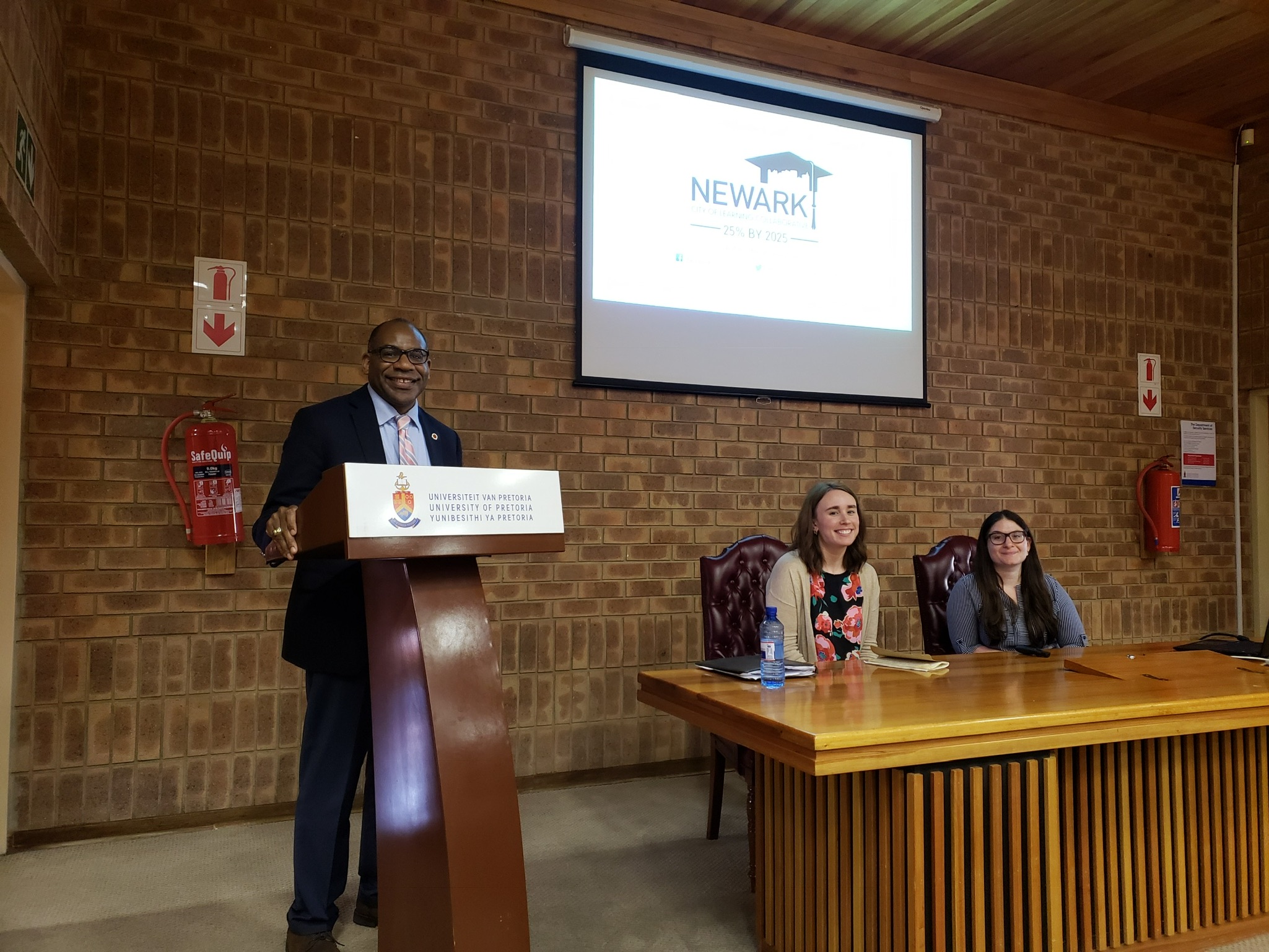The University of Pretoria’s Mamelodi Campus has been involved in a range of community engagement activities in Mamelodi since 2008. The range of projects in the community is indicative of the University’s commitment to the social and economic development of the local community, the greater Tshwane area, and the country as a whole. In 2017, the Kresge Foundation awarded the University of Pretoria and Rutgers University-Newark a planning grant towards their anchor institution strategies in their respective communities in Newark and Mamelodi, called the Mamelodi Collaborative.
As part of the planning phase of the Mamelodi Collaborative, the UP Mamelodi Campus hosted a workshop on 5 February 2019 in which it engaged in the reciprocal exchange of ideas with 43 stakeholders, as well as its international partner, Rutgers University-Newark, to develop a model to enhance the post-secondary opportunities for the residents of the Mamelodi Township. The Executive Director of the Newark City of Learning Collaborative (NCLC), Reginald Lewis, together with Dr. Kristi Donaldson, Postdoctoral Associate in Education Research and Policy, and Danielle Cohen, Special Assistant to the Executive Director and Special Projects Manager, presented the model of the NCLC to the stakeholders. The workshop, a first of its kind in the Mamelodi community, endorsed the lessons learnt from the NCLC. A decision to formalise and strengthen a network of all key role players working in the Mamelodi education ecosystem, provisionally called the Mamelodi Community of Learning Collaborative (MCLC), was adopted.
The MCLC enables the UP Mamelodi Campus to collaborate with the Department of Basic Education’s Tshwane South District and a network of stakeholders to achieve the goal of broadening educational pathways by providing academic enrichment programmes and alternative academic pathways to other tertiary institutions in the Mamelodi Precinct such as the universities of technology and training and vocational education and training (TVET) colleges. A Steering Committee to drive the adoption, translation and development of this model for the Mamelodi community was established.
In her opening remarks at the workshop, the Director of the Gauteng Department of Basic Education’s Tshwane South District reported that her district, which includes the schools in Mamelodi and surrounding areas, was the best-performing district in the entire Gauteng province, based on the matric pass rate of 2018. It also performed the second best nationally. These achievements are, in part, the result of the partnership between the Department and Mamelodi Campus in its pre-university interventions. This observation underscored the significant success achieved by the efforts of the campus and its community partners in assisting the local school system to improve access and success in Mamelodi’s schools.
As part of enhancing the post-secondary school-going culture, the campus, together with its partners, plan to focus on awareness and readiness. Initiatives to promote career awareness include career interest tests, a career fair, career advising, parental education, placement and a credit transfer system through the formulation of articulation agreements and a credit transfer system with TVET colleges and universities of technology. A career hub that will serve as an information centre for residents and learners will be launched in 2019, while a post-secondary readiness programme consisting of academic curricular support and soft skills will commence in July 2019.

